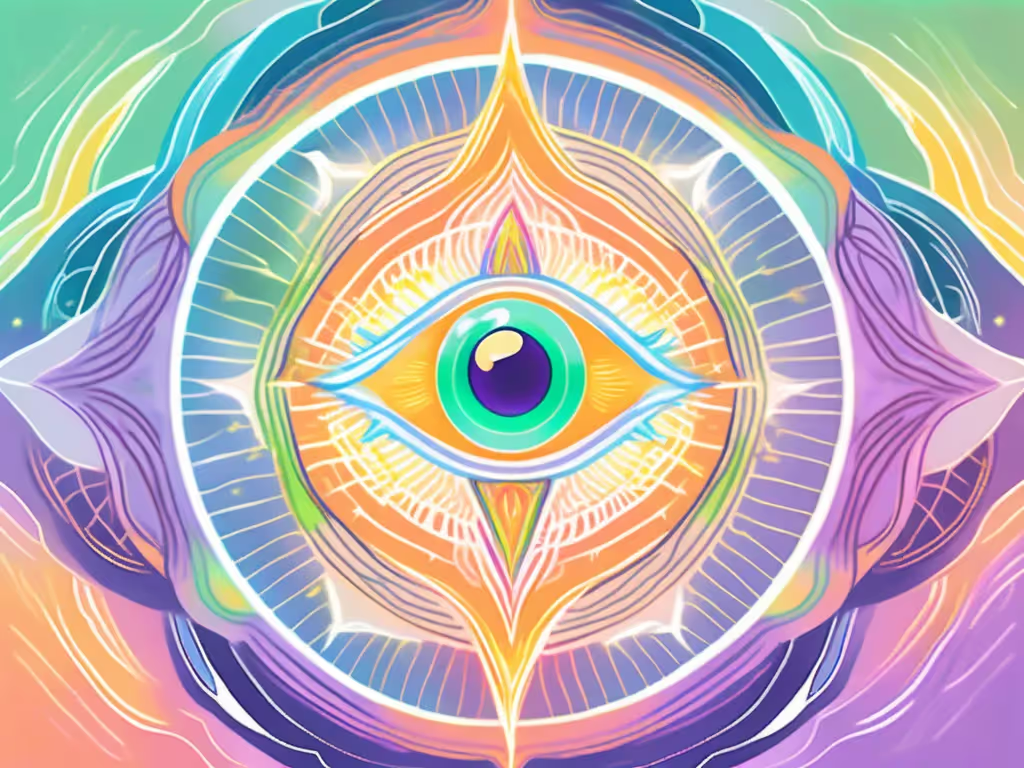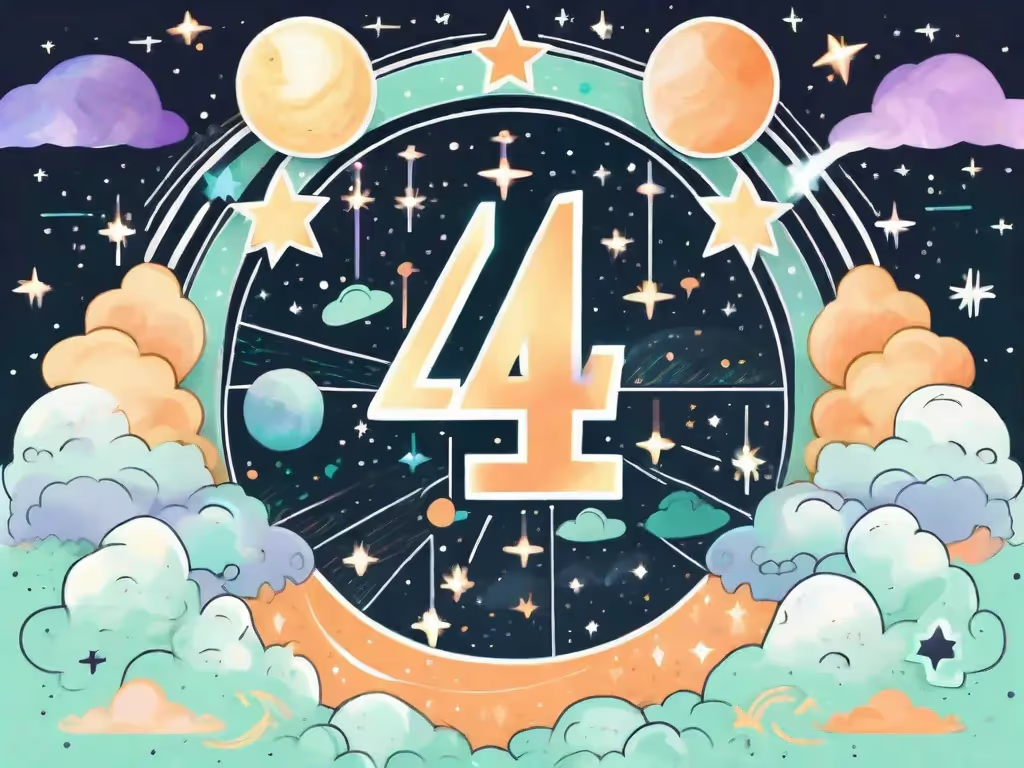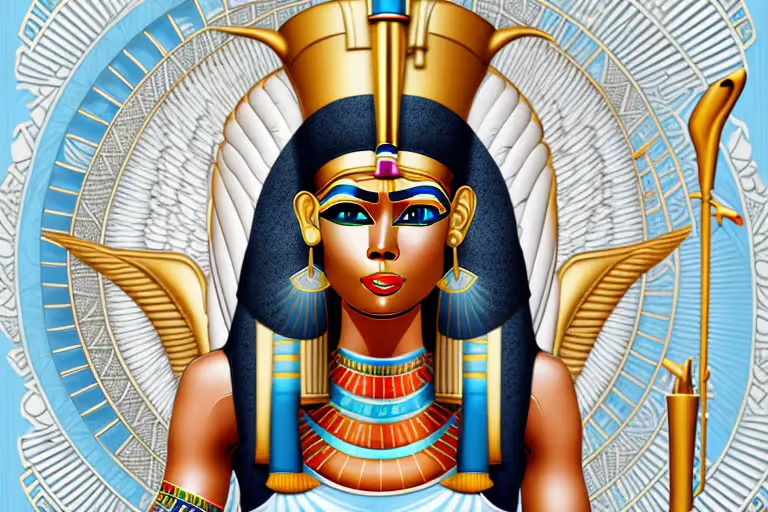The Third Eye, also known as the inner eye or the mind's eye, is a concept deeply rooted in spiritual and meditative practices. It is believed to be a gateway to higher consciousness, intuition, and inner wisdom. This article will delve into the intricate details of the Third Eye, its significance in meditation, and how it is perceived in different cultures and spiritual practices.
While the Third Eye is often associated with clairvoyance, psychic abilities, and the ability to observe chakras and auras, it is also closely linked with meditation. Through meditation, one can purportedly awaken or open their Third Eye, leading to a heightened state of awareness and inner peace.
The Concept of the Third Eye
The Third Eye is a metaphysical and esoteric concept used in many spiritual traditions around the world. It is often depicted as an eye located in the middle of the forehead, slightly above the space between the eyebrows. This symbolic eye is said to represent inner perception, intuition, and the ability to perceive beyond ordinary sight.
Despite its mystical connotations, the Third Eye is not about seeing physical entities or phenomena that aren't there. Instead, it's about gaining insight into the unseen or the spiritual. It's about understanding the world and oneself on a deeper, more profound level.
Origin and Cultural Significance
The concept of the Third Eye has its roots in ancient Indian spiritual traditions, particularly in Hinduism and Buddhism. In Hinduism, the Third Eye is associated with the god Shiva, who is depicted with a third eye on his forehead. This eye represents wisdom, knowledge, and the ability to see beyond the physical world.
In Buddhism, the Third Eye is associated with the 'urna', a curl or dot on the forehead of enlightened beings, representing spiritual insight. The concept has also found its way into other cultures and spiritual systems, including Taoism, Gnosticism, and New Age spirituality.
Third Eye and Chakras
In the context of chakras, the Third Eye is often associated with the sixth chakra, also known as the 'brow chakra' or 'ajna chakra'. This chakra is believed to be located in the middle of the forehead, slightly above the space between the eyebrows, which coincides with the location of the Third Eye.
The ajna chakra is associated with intuition, imagination, and insight. When this chakra is open and balanced, it is believed to enhance one's ability to see clearly, both in a physical and spiritual sense. This is where the concept of 'opening' the Third Eye comes from.
Third Eye and Meditation
Meditation plays a key role in the concept of the Third Eye. Many believe that through specific meditation techniques, one can 'open' or 'awaken' their Third Eye, leading to heightened intuition, spiritual insight, and a sense of inner peace.

These meditation techniques often involve focusing one's attention on the location of the Third Eye (the middle of the forehead), visualizing a light or an eye at that location, and entering a state of deep relaxation. This practice is believed to stimulate the Third Eye and enhance one's intuitive abilities.
Benefits of Third Eye Meditation
Third Eye meditation is believed to have numerous benefits. It is said to enhance one's intuition, improve concentration, promote emotional balance, and lead to a sense of inner peace and wellbeing. Some also believe that it can lead to psychic abilities, such as clairvoyance and astral projection, although these claims are more controversial and lack scientific evidence.
Regardless of whether one believes in these more mystical benefits, Third Eye meditation can be a powerful tool for self-exploration and personal growth. By focusing on the Third Eye, one can gain insight into their thoughts, emotions, and inner self, leading to greater self-awareness and understanding.
Techniques for Third Eye Meditation
There are many techniques for Third Eye meditation, but most involve a combination of focused attention, visualization, and deep relaxation. One common technique is to sit comfortably, close your eyes, and focus your attention on the location of the Third Eye. You can then visualize a light or an eye at that location, and try to maintain this focus for a certain period of time.
Another technique involves using a mantra, such as 'Om', to help focus the mind and stimulate the Third Eye. The sound of the mantra is believed to resonate with the frequency of the Third Eye, helping to 'open' it and enhance one's intuitive abilities.
Scientific Perspective on the Third Eye
From a scientific perspective, the Third Eye is often associated with the pineal gland, a small endocrine gland in the brain. The pineal gland produces melatonin, a hormone that regulates sleep patterns and circadian rhythms. Some believe that the pineal gland is the physical counterpart of the Third Eye, although this is a topic of debate.
While there is no scientific evidence to support the existence of a 'third eye' that can perceive beyond the physical world, there is evidence to suggest that meditation can have numerous benefits, including improved concentration, reduced stress, and enhanced wellbeing. Therefore, regardless of whether one believes in the concept of the Third Eye, meditation can be a beneficial practice for many.
Pineal Gland and the Third Eye
The pineal gland, also known as the 'third eye' in some cultures, is a small gland located in the center of the brain. It is responsible for the production of melatonin, a hormone that regulates sleep and wake cycles. Some believe that the pineal gland is the physical manifestation of the Third Eye, as it is associated with light perception and sleep-wake cycles.
There are theories suggesting that the pineal gland can produce a compound called DMT (dimethyltryptamine), often referred to as the 'spirit molecule'. DMT is a powerful psychedelic substance that can induce intense spiritual experiences and visions, similar to those described by individuals who claim to have opened their Third Eye. However, these theories are controversial and not widely accepted in the scientific community.
Meditation and Brain Activity
Research has shown that meditation can have a profound effect on brain activity. It can increase activity in areas associated with attention, emotion regulation, and self-awareness, and decrease activity in areas associated with stress and anxiety. This could potentially explain some of the benefits associated with Third Eye meditation, such as improved concentration, emotional balance, and self-awareness.
Some studies have also found that experienced meditators have increased activity in the pineal gland, suggesting a possible link between meditation, the pineal gland, and the concept of the Third Eye. However, more research is needed to fully understand these connections.
Conclusion
The concept of the Third Eye is a complex and fascinating one, with roots in ancient spiritual traditions and connections to modern meditation practices. Whether viewed as a metaphor for intuition and insight, or as a literal inner eye that can perceive beyond the physical world, the Third Eye represents a journey towards self-discovery and inner wisdom.

While the scientific understanding of the Third Eye is still evolving, the benefits of meditation are well-documented. Whether or not one chooses to explore the concept of the Third Eye, incorporating meditation into one's daily routine can lead to numerous benefits, including improved concentration, emotional balance, and a sense of inner peace.



.webp)






.avif)

%20(1).avif)


.avif)
.avif)
.webp)


.avif)


















































































































.avif)

















.svg)









